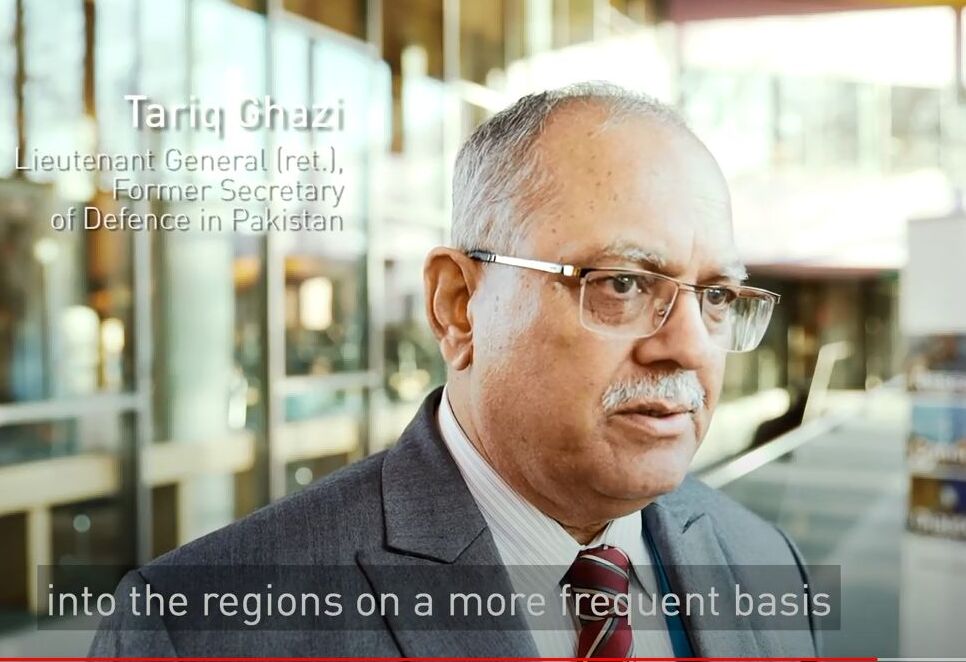Global experts and governments convene at planetary security conference

The Hague, 6 December 2016
The leading lights of the global community working on the risk to security posed by climate change are meeting in The Hague on December 5-6 at the Planetary Security Conference. Lieutenant General Tariq Waseem Ghazi (Ret.) of Pakistan, Major General Muniruzzaman (Ret.) of Bangladesh and Rear Admiral (ret) Neil Morisetti, RN are among those representing GMACCC at the event.
See article in The Guardian on migration with the interview with Maj Gen Munir Muniruzzaman, GMACCC
Launched in 2015, the Planetary Security Initiative (PSI) was created by the Netherlands Ministry of Foreign Affairs as a three year programme to engage representatives at all levels of governance, academia, civil society, and the private sector to work together on timely responses to climate related threats to security.
The conference is now organised by a consortium of leading think tanks and brings together expert input on policy solutions in this field. Many more organisations are involved in co-organising 12 Working Groups to discuss pressing issues on this increasingly urgent security agenda.
Clingendael Institute heads the consortium. Project Manager Louise van Schaik said “We are very excited to move from the introduction of the problem to formulating solutions. For that we need international political support up to the highest level.”
On behalf of the Netherlands government, Bert Koenders, Minister of Foreign Affairs, delivered the opening address. At last years’ conference he emphasised the pressure on the world’s economic, social and political systems caused by climate change, and that the “most serious risks will emerge when the impacts of climate change overburden weak states”. Netherlands Chief of Defence General Tom Middendorp who said earlier this month climate change impacts were fuelling war worldwide, also spoke in the opening session.
“Climate change creates conflict, it creates a ground for extremism, it creates a ground for migration flows,” Middendorp said.
Although numerous governments and institutions such as the UN and NATO have recognised climate impacts on conflict and human security, we now need to translate this into putting policies in place to deal with these risks which are still underestimated. This conference aims to improve understanding in foreign and defense policy circles.
Alexander Verbeek, advisor of the Planetary Security Initiative, said, “The PSI is about engaging the policy makers as we work to translate experts’ analysis into action. We aim to move forward, and quickly, on last year’s interaction of these two constituent groups from over 75 countries.”
Two ground breaking reports were prepared as key inputs to the conference – a new monitor, the Economics of Planetary Security: Climate Change as an Economic Conflict Factor, which has for the first time modelled the economic impact of climate change in conjunction with conflict risk with startling results.
The second report, Towards A Global Resilience Agenda, assesses the developments in the climate and security policy space and finds further progress in this regard crucial as the security environment has worsened over the past 18 months.
Other top speakers at the Conference include Amina J. Mohammed, Minister of Environment of the Federal Republic of Nigeria; Peter Fischer, Deputy Director General for Energy and Climate Policy and Export Control, German Federal Foreign Office; Paula Caballero, Global Director, Climate Program, World Resources Institute (WRI); and André Haspels, Director General Political Affairs, Ministry of Foreign Affairs of the Netherlands.